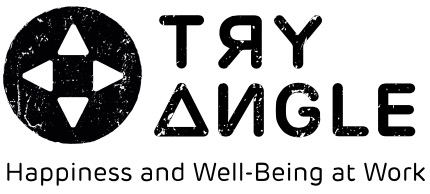In the summer of 2018, I wrote a book entitled “From prosperity to happiness at work”. It examines what causes the stress and burn-out epidemic that we are seeing across the world today. Many issues are a driver for unhealthy stress, but the one with probably the greatest impact is the technological revolution. Once the personal desktop transformed into a laptop, and the telephone was rebranded to the smartphone, we could no longer enjoy true freedom. That might seem contradictory, as new technologies offer a great deal of freedom: the freedom to work whenever and wherever we want; the freedom of being able to access all the information we could possibly need within easy reach; the freedom of being able to reach out whenever we’re in need … But the one thing that needs to walk down the aisle in order for our marriage with technology to be a happy one, is the knowledge of how to deal with these technological tools of freedom.
Recently, I attended a conference on brain health. Professor Theo Compernolle, author of the book “BrainChains”, talked about how little we truly know about our brain and how this is in fact a real shame, since we are not using it to its full potential. Simply because we actually cannot grasp the full impact our technological tools have on our brain. That is why I would like to share a few tips on how to take better care of your brain:
1. Don’t let a lack of sleep ruin your brain
We sleep in different stages: from a rather light sleep, we dive into a deep sleep stage that allows our brain to digest everything that happened to us during the day, enabling us to recover both mentally and physically. In order to sleep well, we need melatonin, which is a hormone that we produce with the help of the warmer light that it typically produced around dusk. If you replace this warmer light with cold, bright LED lights (typically produced by our screens), you start interfering with your melatonin production. Do you not really feel revitalised when getting up in the morning? Try putting away your screens 1.5 hours before you go to sleep and replace the brighter lights in your house with warmer light sources with a red to yellowish appearance to mimic the sunset. You’ll be good as gold in the morning!
2. Don’t ruin your brain by being connected all the time
It is wonderful that we have the opportunity to be connected all the time, but this always-on approach has a devastating effect on our brain. Our brain needs focus, attention, presence and awareness, and when we are connected, we can’t be in the moment. This leaves us in a reactive mode. We then find ourselves in the primitive part of our brain, and not in our magnificent thinking brain. Did you know that humans are the only creatures who can switch of their reactive brain? When we are consciously emerged in our thinking brain, we can reduce the impact of the reactive brain. Invariably choosing the pathway to your reactive brain or activating your thinking brain makes a real difference. Actively train your thinking brain and give it what it needs to be healthy!
3. Don’t let the “on” switch ruin your brain
Your brain functions just the way your computer and other devices do: it’s battery needs recharging. That is a fundamental process if you want to use your brain to its maximum potential. Just as your electronic devices need regular time to recharge, so does your brain. That means your brain needs downtime, which translates into relaxation time: doing the things that you like, doing nothing at all, meditating, mind wandering … During this downtime, the brain outsmarts electronic devices and goes one important step further: it boosts your creativity. Your best ideas arise whenever your brain is not switched into thinking mode. So in order to get fresh ideas, you should allow your thinking brain to switch off. And switching off means taking a real break without the interference of electronic devices. Unfortunately, many people consider these breaks as a waste of time, even though they are the best investment in your most precious tool!
Professor Compernolle is convinced that we are only at the start of an incredible technical revolution. A revolution that will amplify the magnificent power of our brain, but only on one condition: that we know enough about the functioning of our brain so as not to ruin the potential synergy between our grey cells and IT. I would like to finish by stressing that IT itself does not make us ill. There would be no greater loss than having all the intelligence in the world and not being able to put it into practice due to a lack of knowhow about the intelligence itself.





